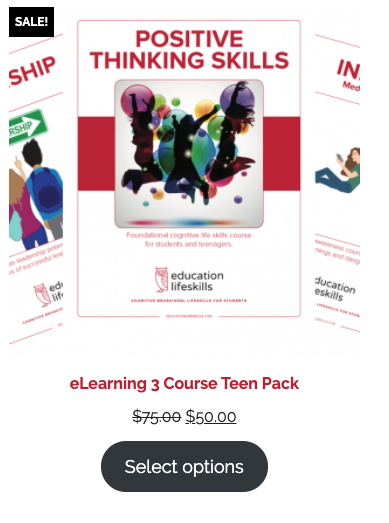Most of what curriculum covers throughout school focuses on academic information, with very few opportunities for students to focus on developing cognitive life skills. A primary purpose of high school is to prepare students for college or other further studies, but successful young adults must also perform in real-world situations. Positive thinking courses in high school can provide them with the tools for lifelong personal and professional achievement.
Math Isn’t Money Management
Students need math, algebra and geometry, but that doesn’t teach them skills for financial success. Even courses like finance and accounting focus more on theory than developing basic money skills.
Students finish high school and start adulthood without knowing how to create a budget, balance a checkbook, read bank statements or plan for saving. They often say they’re interested in investing, but they don’t know how the stock market works. They know bad credit should be avoided, but they aren’t sure what steps they can take to build good credit or how that impacts things like insurance rates and auto loans.
Mental Illness Is Extremely Prevalent
A report on the state of mental health in America estimates one in five adults has a mental health condition. Youth depression is getting worse every year and 80 percent of depressed teens receive little or no treatment. Students don’t understand conditions like ADHD, anxiety disorders and schizophrenia, and their lack of understanding keeps those with mental illness from seeking help. If students had regular instruction on mental illness as part of required learning, they could learn to better recognize it and have compassion for those experiencing it.
Manners Still Matter
Students finish school and enter the workplace with no idea how to behave in a professional setting. Communication breaks down because they don’t have guidelines for sending an email to co-workers and superiors or what type of behavior is polite. Classes should teach how to respond appropriately in a range of situations to instruct students on common etiquette.
Cooking Is Good for the Soul
Many children grow up eating food handed to them through a drive-through window. They may have working parents who don’t have time to cook or who never learned themselves. Part of the reason for the obesity epidemic is a large portion of the population doesn’t know how to prepare healthy meals. Basic cooking skills help improve health, save money and create positive family interactions.
Good Time Management Creates Balance
Many people live under extreme stress because they feel they can’t accomplish all the tasks for which they’re responsible. Time management doesn’t just involve squeezing the most productivity out of every minute, it helps allocate time for enjoyment.
Students have access to technology that allows them to stay self-disciplined, organize priorities and locate resources for relaxation. Life skills curriculum can point out the need for good time management and help students find tools for making it a habit.
Schools face an ongoing challenge when it comes to equipping tomorrow’s workforce. High schools can prepare students for success by giving them the skills they need to become productive adults.



